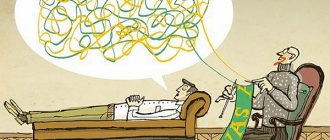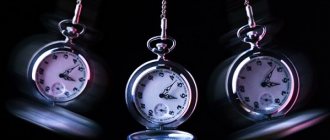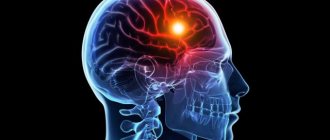Depression (from Latin depressio - suppression, depression) is a depressed, depressed mental state, mental gloominess associated with inhibited reactions.
Signs and symptoms of depression:
- loss of self-esteem and its complete absence;
- fixation on the same thoughts;
- depression and frustration;
- loss of meaning in life and lack of goals;
- unwillingness to do anything;
- search for justice;
- loss of self;
- dependence on something or someone.
Make a choice:
- Either you stop fighting and let depression develop in you.
- Or you can understand its essence and realize why depression exists in your life.
Realize that depression is your friend and not your enemy , but its task is to show us those areas of life that are not okay. Take depression as your teacher, and then you will begin to close your question about how to get rid of depression on your own and start living.
It is not pain that brings us suffering, but our thoughts that it exists
Realize that the pain of depression comes not because it exists, but because we perceive it as pain .
Understand that pain itself does not bring suffering . But our thoughts that this depression exists for us and that something is wrong brings us suffering.
Pain itself only brings some discomfort, and it is a signal that something is wrong.
Don’t try to drown your inner pain with alcohol and other things - this is not a way to cure yourself
If we try to cover up depression with alcohol or various external pleasures in order to stop feeling it, the problem will still not be solved.
Getting rid of depression on your own has nothing to do with making love, cigarettes, alcohol and other temporary pleasures. They won't fix your problem.
Alcohol can temporarily dull your senses , that is, rid you of yourself. And tomorrow you will have a hangover and depression again.
Moreover, if you make love to a person who has bad energy, this will make your condition even worse than before. You can actually feel even worse and will make it worse if your partner has bad energy. Therefore, the option of making love will not help you at all.
Stop running somewhere, stop, put things aside
Your depression is telling you right away:
- Stop striving somewhere and doing things, stop.
- Stop running somewhere and solve this internal issue right now.
Once we solve the problem, then we can move on.
You must figure out the problem yourself! Friendly and friendly advice on how to get rid of depression quickly may not be entirely effective. No one but you can look inside you and read your thoughts.
This is where you really need to stop running and thinking that you will deal with depression later. Put everything aside and solve the problem now.
There will never be a right moment if you always put it off. It's very easy to get caught up and forget about yourself.
It is important to understand how strong and free you will be when you stop and understand yourself, look and understand your problem.
Thank depression for showing up now . It will allow you to solve more complex problems in advance later.
Take your time and just focus on yourself as an individual. This cannot be overstated.
Why do we take everything so hard and experience unpleasant emotions?
Because we pay attention only to pain and experiences, that is why they exist and are felt in this form.
After all, if we received this information in another form, we would not pay attention to it.
If information came through pleasures and pleasures , we would remain indifferent to it. Then your problem of how to treat depression at home would remain unresolved.
We pay attention only to what is unpleasant for us to feel and what creates discomfort.
How to calm the nervous system
Often, the reasons for increased nervousness lie not in the functioning of the brain, but in the human psyche, that is, they depend on how effectively one can solve the psychological problems that arise. If they remain unresolved, then sedatives will only be effective temporarily. When the course of treatment ends, anxiety and depression will arise again. This explains why psychiatrists advise looking for non-drug methods to cope with stress.
Music for relaxation and calming nerves
Overwork, nervous excitement, stress lead to increased irritability, sleep disturbance and depression. Long-term stress to which the nervous system is subjected leads to the development of chronic mental illnesses. To avoid such consequences, you must try to maintain a good mood and calm under any circumstances. Music can be a good sedative.
Experts advise listening to classical instrumental music while lying down with your eyes closed to prevent depression and calm the nervous system. The following compositions would be ideal as a sedative:
- Haydn "Symphony";
- Bach "Moonlight Sonata";
- Schubert "Ave Maria", etc.
Folk remedies
- Herbal remedy for depression. Mix 20 g of St. John's wort leaves, lemon balm, blueberries, rosemary. Pour a cup of boiling water over a tablespoon of the herbal mixture and leave to steep. After half an hour, drink the strained liquid, adding a spoonful of honey. Brew this tea for yourself every day before bed.
- Ginseng tincture. Pour 10 g of plant roots with 100 ml of alcohol. When the infusion has stood in a dark place for a month, you can begin to take it. The recommended dosage of the sedative is 20 drops three times a day.
- Good soothing tea. Combine 1 tsp. leaves of thyme, St. John's wort, yarrow, catnip and lemongrass berries. Pour the ingredients into 0.5 liters of boiling water, cover the container with a warm cloth and let stand for an hour. Strain the liquid and drink ½ glass during breakfast. This remedy also treats hypotension.
Have the perception “Inner pain is your best helper and friend”
There is nothing wrong with depression and pain. This is your best assistant and friend who works for you all your life. He talks about your weaknesses and suggests covering them.
And the best thing we can do is listen to our main assistant and do so. Because later it will bring you the greatest benefits and new awareness on how to cure depression at home without outside help.
Therefore, whatever problems you have, forget about them and sort yourself out.
The most important thing in this world is you. Many people forget about themselves and do not take care of themselves.
Find the source and reason for the problem, engage in self-exploration
Ask yourself questions and answer them in writing , such as:
- Is what is tormenting me now real, or did I come up with it myself?
- How did my depression begin?
- Did I create this condition myself?
- Who made me feel bad?
If you are worried after breaking up with your significant other, then we have a detailed article on how to forget the girl you love, but she doesn’t love you.
Ask questions and you will be pleasantly surprised by your own insights about how to cure depression on your own.
Ask yourself: “What do I need to get rid of so that I can enjoy life again?”
As soon as you find the answers to the questions, do it right away!
Look at your life and think about what you should remove :
- Perhaps you suffer from love addiction or attachment. We have a detailed article on how to overcome love addiction.
- Maybe there are idiots around you who only bother you and spoil your ecosystem of emotions. Send them to hell. Why do you need them?
- Perhaps your energy is wasted by unnecessary things or empty conversations, stupid people. Find these moments in your daily life and don't waste your time on them.
- Maybe you need to watch less Santa Barbara and scandalous shows on TV.
By getting rid of everything unnecessary, you will have steadfastness and close your questions about how to treat prolonged depression.
Ask yourself: “What do I need to add to make me enjoy life again?”
Think about what you need to implement into your life. For example :
- You need to get a normal, quiet job.
- You need to spend time outdoors more often.
- Change your routine and go to bed earlier.
You can add a lot of things, everyone has their own preferences. Write all these things on paper and no longer worry about how to get rid of depression forever.
About the perception of pain for men and women
On the topic of how to treat depression in women and men using the perception “Pain is your best assistant.”
This means you change your perception of pain, failure and depression.
You change your attitude towards the problem, as a result of which you will have a completely different experience.
Perception generates state.
The following options will also be useful in solving your problem.
Take pills or talk? Psychiatrist on how to choose a treatment for depression
Since the time of the French philosopher René Descartes, scientists have been puzzled by the “mind-body problem,” especially as it relates to mental illness. Depression, obsessive-compulsive disorder, and other conditions can be treated by addressing both the body (with antidepressants) and the mind (with psychotherapy). So which method is more effective? Psychiatrist David Burns addresses this issue in his book Mood Therapy - T&P publishes an excerpt.
Mood Therapy: A Clinically Proven Way to Beat Depression Without Pills
David Burns
Alpina Publisher. 2019
Our mind is made up of thoughts and feelings, invisible and ephemeral. We know they exist because we experience them, but we don't know why or how they exist. Our body, on the contrary, is material: it consists of blood, bones, muscles, fat, etc. Matter consists of molecules, molecules consist of atoms. This building material is inert. Supposedly, atoms are not conscious. So how can an inert substance in our brain give rise to a conscious mind that can see, feel, hear, love and hate?
According to Descartes, our mind and body are somehow connected. Descartes called the area of the brain that connects these two essences of ours “the seat of the soul.” For several centuries, philosophers have tried to determine where this “seat of the soul” is located. Neuroscientists are now continuing this search, trying to figure out how the brain creates emotions and conscious thoughts.
The belief that our mind is separate from our body is reflected in how we approach treatment for depression.
There are biological treatments that deal exclusively with the “body,” and psychological treatments that work with the “mind.” Biological treatments typically involve medication, while psychological treatments typically involve talk therapy.
There is strong competition between the “drug therapy” and “talk therapy” camps. On average, psychiatrists are more likely to be in the medicinal camp. This is due to the fact that they are trained primarily in medicine (they must obtain an MD degree). They can prescribe medications and are more likely to adhere to the medical model of diagnosis and treatment.
If you go to see a psychiatrist while depressed, they will likely tell you that depression is caused by a chemical imbalance in your brain and recommend antidepressants.
If you are being treated for depression by your family doctor, drug treatment will also be most likely. This is because many family doctors lack knowledge in psychotherapy and lack the time to discuss life problems with patients.
In contrast, psychologists, clinical social workers, and other counselors of various types are more likely to belong to the talk therapy camp.
They are not medically trained and cannot prescribe medications*. Their training usually focuses primarily on the psychological and social factors that can cause depression. If you suffer from depression and see a talk therapy therapist, you will likely be asked about your maturation process and outlook, or about stress you've experienced, such as losing a loved one or getting laid off. You may also be recommended psychotherapeutic treatment, such as cognitive behavioral therapy. Be that as it may, there are many exceptions to this rule. Many non-medical therapists agree that biological factors do play a role in depression, and many psychiatrists are gifted psychotherapists. Psychiatrists and non-medical therapists sometimes work together to ensure that the patient gets the most benefit from both treatments.
Some psychologists are trying to gain the right to prescribe drugs, and those who work in the US military have already received a license to prescribe drugs.
There is serious debate about the merits of introducing such a right. Some psychologists argue that prescribing rights are desirable because they will allow them to compete on an equal footing with psychiatrists for patients. Others argue that prescribing drugs requires more medical training and that the profession would lose an important part of its identity if psychologists were given the right to prescribe drugs. They also point out that the role of the psychiatrist, especially in Managed Care, completely
unattractive.
Many psychiatrists who work for health care organizations are forced to see a huge number of patients in a very short time, with only time to discuss medications and no opportunity for psychotherapy or exploration of the patients' life problems. — Approx.
auto However, the division between the mind (psychological) and body (biological) schools is quite clear, and the dialogue between them is often tense, combative and bitter. Political and financial considerations influence the tone of these discussions, sometimes even more than scientific discoveries. A number of recent studies suggest that this debate is making too much noise about nothing, and that such a categorical distinction between mind and brain may be illusory. These studies indicate that antidepressants and psychotherapy may have similar effects on the mind and brain. In other words, they may have similar effects.
For example, a classic study published in the Archives of General Psychiatry in 1992 by Drs. Lewis Baxter, Jeffrey Schwartz, Kenneth Bergman and their colleagues at the University of California, Los Angeles School of Medicine, described changes in brain chemistry in 18 patients. suffering from obsessive-compulsive disorder (OCD). Half of these patients received cognitive behavioral therapy and were not taking medications. And the other half took antidepressants and did not undergo psychotherapy. Patients in the drug-free group received dual-component individual and group psychotherapy. The first component was exposure and response prevention. This is a behavioral therapy technique that helps patients resist the compulsive urge to check locks, constantly wash their hands, etc. And the second component was cognitive therapy using the techniques described in this book. Remember that the patients in this group were not receiving any medications.
This study used positron emission tomography (PET scan) to measure metabolic sugar (glucose) levels in different areas of the brain before treatment and ten weeks later. This method allows you to evaluate the activity of nerve endings in different areas of the brain. One area of the brain that was of particular interest was the so-called caudate nucleus in the right hemisphere.
Both treatments were effective: most patients in both groups improved, and there were no significant differences in results. This didn't come as much of a surprise: Previous research had also shown that medications and cognitive behavioral therapy had similar effects in treating OCD. However, the results of the PET study were unexpected. The researchers reported comparable levels of decreased activity in the right caudate nucleus in successfully treated patients, regardless of whether they were treated with drugs in the absence of psychotherapy or received psychotherapy and did not receive drugs. In addition, both groups' symptoms and thought patterns improved about the same, meaning both treatments were equally effective. Finally, the degree of symptom improvement was significantly correlated with the level of change in the right caudate nucleus. In other words, the patients with the most significant improvement, on average, had the greatest decrease in neural activity in the right caudate nucleus. The reduced level of activity meant that neural activity in that area of the brain calmed down, regardless of whether the patient was receiving drug treatment or psychotherapy.
One implication of this study is that excess activity in the right caudate nucleus may influence the development or maintenance of obsessive-compulsive disorder symptoms. Another important consequence is that
Antidepressants and cognitive behavioral therapy may be equally effective in restoring brain structure and function.
Like most published studies, the above described has several rather significant shortcomings. One problem is that any observable changes in the brain that appear in a particular psychiatric disorder may be an effect rather than a cause. In other words, increased neural activity in the right caudate nucleus in patients with obsessive-compulsive disorder may simply reflect a more general picture of disturbances in the brain and not be the cause of its symptoms. […]
Other studies have shown that antidepressants can help depressed patients change negative thinking patterns. Indeed, in a study conducted at Washington University School of Medicine in St. Louis by Drs. Anne Simons, Saul Garfield and George Murphy, depressed patients were randomly assigned to receive either antidepressant treatment alone or cognitive therapy alone. The experiment examined changes in negative thinking patterns in both groups of patients. The researchers found that negative thinking in patients who responded positively to antidepressant therapy experienced similar improvements as depressed patients who responded positively to cognitive therapy. Remember that patients treated with drugs did not receive psychotherapy, and patients treated with cognitive therapy did not receive drugs. In summary, this study showed that drug treatment changed negative thinking as well as cognitive therapy. The effects of antidepressants on beliefs and thoughts may explain the beneficial effects of the drugs as much as or better than biological accounts of their effects on various transmitter systems in the brain.
These landmark studies suggest that,
It may be best to move away from such a sharp mind-body distinction and consider how different treatments can have the most beneficial effects on both the mind and brain systems.
This combined approach could lead to greater collaboration between therapists and researchers looking at the problem from different angles and to faster progress in the study of emotional disorders.
Even if some cases of depression involve a specific genetic or biological disorder, psychotherapy can help correct these problems, even without the use of drugs. Many studies, as well as my own clinical experience, have confirmed that severely depressed patients, whose condition appears to be very biologically based and accompanied by many physical symptoms, often show rapid improvement in response to cognitive therapy without the use of drugs.
The opposite may also be true. I have worked many times with depressed patients who did not feel any progress after my numerous psychotherapeutic interventions. When I prescribed antidepressants for them, this turned out to be a turning point for many, and psychotherapy also began to bring more results. The medication actually seemed to help them change their negative thinking patterns as they recovered from their depression. […]
Suppose scientists discover that almost all forms of depression are caused, at least in part, by genetic factors. Would this mean that depression should be treated solely with medication? The answer is: not necessarily. For example, fear of blood is considered to be at least partially hereditary, but can almost always be quickly treated with behavioral therapy. The most effective treatment for most phobias is to place the person in a frightening situation and force him to face it and experience the anxiety in a controlled manner until the fear subsides and disappears completely. Most patients are so frightened by this method that they initially resist treatment. But, if you can convince them to stay a little longer, the percentage of those successfully cured turns out to be extremely high.
I experienced this first hand. As a child, I was horrified by the sight of blood. When, while studying at the Faculty of Medicine, we had to take a blood test from a vein from each other, I didn’t want to do it so much that I dropped out of school. The following year, I decided to take a job in a clinical laboratory at Stanford University Hospital specifically to try to overcome my fear. My job was just to take blood tests from a vein all day long. The first few times I felt very anxious, but then I gradually got used to it. I soon began to adore my new job. This shows that drug-free behavioral therapy can at least reduce some genetic tendencies. […]
The opposite is also true. If it were discovered that depression is solely due to environmental factors and that genetics have no influence on it, this would not reduce the potential value of antidepressants. For example, if you find yourself near someone with a sore throat, you can easily get a sore throat, because the streptococcus bacteria that causes it are extremely contagious. It can be said that your sore throat is entirely caused by the environment and not genetics. However, you will treat her with an antibiotic rather than behavioral therapy. […]
From a practical perspective, the question I face as a clinical psychologist is: What is the best treatment for any given patient who suffers from depression, regardless of the cause? Whether genes play a decisive role or not, drugs can sometimes help, and sometimes psychotherapy works better. Sometimes the best treatment is a combination of psychotherapy and antidepressants. […]
My own clinical experience has convinced me that “test tube” treatment with drugs alone does not give the desired result in most patients. Effective psychological interventions do appear to have a role to play,
even if you are lucky and have responded positively to taking antidepressants. If you learn the self-help techniques that cognitive therapy offers, like those described in this book, I believe that you will be better prepared for any mood problems in the future. […]
I have also found that certain negative beliefs and irrational thoughts can interfere with effective medication or psychotherapy. Next, I would like to debunk [several] harmful myths. The first eight relate to drug treatment, and the last four relate to psychotherapy. When it comes to medications, I believe it is highly advisable to be cautious when taking any medication, but an overly conservative approach based on dubious half-truths can also be destructive. I also believe that one should be moderately skeptical and cautious about psychotherapy, but excessive pessimism can also interfere with effective treatment.
“Taking this medicine will make me stop being myself. I will act and feel strange.”
One could hardly be more mistaken. […] In fact, many patients report feeling more like themselves after starting antidepressants. […]
“These drugs are extremely dangerous.”
Wrong. If you are under medical supervision and working with your doctor, there is no reason to be concerned about most antidepressants. Adverse reactions are rare and can usually be managed safely and effectively if you and your doctor work together. Antidepressants are much safer than depression itself. […]
“But the side effects will be unbearable.”
No, if you choose the right dosage, side effects are usually mild and barely noticeable. And if, despite this, the medication causes you discomfort, you can usually change the drug to one that is equally effective, but with fewer side effects. […]
“I won’t take a drug prescribed by a psychiatrist because that would mean I’m crazy.”
We need to be clear here. Antidepressants are prescribed for depression, not insanity. If your doctor recommends that you take an antidepressant, this will indicate that you have a mood problem. This does not mean that the doctor thinks you are crazy. However, true insanity is to refuse to take antidepressants because of such fear, because it can only bring you suffering and unhappiness. Paradoxically, with the help of medication you can feel more normal much faster. […]
“But other people will definitely look at me with contempt if I start taking antidepressants. They will consider me inferior."
This fear is unrealistic. Other people will never know whether you are taking an antidepressant or not unless you tell them. There are no other options. If you do tell someone, they will be more likely to feel relieved. If a person cares about your condition, perhaps, on the contrary, he will begin to respect you more, because you are making efforts to cope with a painful mood disorder. […]
“Taking pills is embarrassing. I have to deal with depression on my own."
Research on mood disorders from around the world has clearly shown that many people can recover without medication if they actively follow a structured self-help program like the one described in this book. However, it is also true that psychotherapy does not work for everyone and that some depressed patients recover more quickly with antidepressants. Additionally, in many cases, an antidepressant, as mentioned above, can make things easier for you. […]
“I am so severely depressed and so stuck in it that the only thing that can help me is medication.”
Both medications and psychotherapy can be very helpful in treating severe depression. I believe that both a passive attitude and over-reliance on the medication doing the work for you are unwise. My own research has shown that
The desire to do something to help yourself already has a powerful effect on treating depression, whether you take medication or not.
Patients who complete self-help tasks between sessions also seem to recover faster. So, if you combine the drug with the appropriate form of psychotherapy, you will have more working tools in your arsenal. […]
“It is a shame to seek psychotherapeutic help, because it will mean that I am a weakling and neurotic. It is more acceptable to be treated with medication because it means my illness is medical in nature, like diabetes.”
In fact, shame is experienced by many depressed patients who are treated with both medication and psychotherapy. […] Imagine, for example, that you have just discovered that a close friend has been treated for depression with psychotherapy and has benefited from the treatment. Ask yourself what you would say to this friend. Is it really “Oh, psychotherapy just shows what a weakling and failed neurotic you are. You should have taken your medications. What you did is just a disgrace"? And if you wouldn’t say it to a friend, why say it to yourself? […]
“My problems are real, so psychotherapy probably won’t help.”
In fact, cognitive therapy works best for people suffering from depression caused by real life problems, including catastrophic medical problems such as terminal cancer or amputation, bankruptcy, or difficult relationship problems. […]
“My problems are hopeless, so neither psychotherapy nor drugs will help.”
This is what your depression says, but the reality is completely different. Hopelessness is a common but terrifying symptom of depression that is caused by distorted thinking, just like other symptoms. One such bias is called “emotional rationale.” A depressed person may think, “I feel hopeless, so my situation must really be hopeless.” Another cognitive bias that leads to feelings of hopelessness is prediction error. You make a negative prediction that you will never get better and assume that your prediction is an immutable fact. […] Patients who feel hopeless usually do not see that they are deceiving themselves. They are almost always convinced that their feelings are absolutely justified. But if I can convince them to respond by questioning these hopeless feelings and trying to achieve improvement, usually the patients actually begin to experience improvement, although deep down they do not feel that it is possible. At first the process is quite slow, but then it speeds up and the patient begins to feel much better.
In the “Open Reading” section we publish excerpts from books in the form in which publishers provide them. Minor abbreviations are indicated by ellipses in square brackets. The author's opinion may not coincide with the opinion of the editors.
Let go of past grievances and memories, don’t carry everything with you
Some people have a habit of dragging with them all past negative situations, bad moments, and clashes with people.
Let them go, don’t feed their seriousness, don’t feed someone else’s abuse.
Successful and self-motivated people encounter difficulties and uncomfortable situations almost every day. It is precisely because they know how to forget about the negative, do not attach much importance to them , and continue to follow their path to success that they are successful.
It is those people who cling very much to their proud personality, who cannot treat themselves easier and consider themselves a big shot, who are the most vulnerable people.
It is such selfish people that are very easy to get hooked on ; they can easily be hurt mentally. An arrogant person will often ask questions about how to get rid of depression and anxiety and will have difficulty finding answers.
Treat yourself and your life more simply, put your EGO away. Read more about EGO, inflated self-esteem and a sense of self-importance - detailed definitions of terms at the link.
What drugs cause drowsiness?
Many good sedatives for depression cause drowsiness. For example, tricyclic drugs such as Azafen or Amitriptyline, although highly effective, cause many side effects, including decreased potency, dehydration and increased drowsiness. In addition, these negative consequences can be manifested by tranquilizers of different groups: Gedocarnil, Buspirone, Amizil, Mebicar, etc. The listed drugs are used to eliminate anxiety, sleep disorders, and muscle spasms.
Start meditating to find peace more often
People just go crazy sometimes because of their internal dialogue.
I have met people who talk to themselves and are still angry at an invisible person, voicing their indignation out loud. They know nothing about how to treat depression and what symptoms need to be addressed first.
In order to have clear thoughts and a light head from the very morning, start meditating in the morning for 15-20 minutes . The same thing in the evening before bed.
These two meditations a day are enough to see results in a week or a month. You will notice the changes yourself.
Read our full instructions on how to meditate correctly at home and everything about meditation at home, following the link.
Folk remedies for depression
What people can come up with to improve their well-being. Some are treated with herbs, others do acupuncture exercises, others change their lifestyle, introducing useful habits into it.
Treatment with honey
The chemical composition of honey contains substances that have a positive effect on the nervous system.
The product contains:
- B vitamins;
- vitamin E;
- provitamin A;
- selenium and magnesium;
- glucose.
These are anti-stress substances that help resist problems, cope with insomnia, relieve fatigue and apathy, and reduce nervous excitability.
You may be interested in an article about the treatment of multiple sclerosis.
There is also an interesting article about treating insomnia with folk remedies.
After reading this article, you will learn all the symptoms and treatment of the thyroid gland.
Drinks for depression
Some drinks, like foods, have an anti-stress effect.
- A drink with mint and lemon balm will relieve a bad mood. Herbs soothe and give the drink a unique taste and aroma. Lemon and honey will help enhance the effect;
- Tea with ginger, cocoa and honey has a relaxing effect. As a bonus, we note the fat-burning properties of ginger root;
- Mix 2 bunches of fresh lemon balm leaves and the juice of 4 oranges. A simple drink lifts your spirits and has a calming effect;
- You will need 500 ml of boiled milk and a tablespoon of whipped cream. Mix the ingredients and heat on the stove. Add 100 g dark chocolate. Heat the drink until the chocolate is completely dissolved. Serve warm, add a pinch of cinnamon.
Recipes for decoctions and tinctures
- Ginseng is a plant that has a calming effect.
Grind 50 g of plant root, pour 500 ml of medical alcohol into it. Leave in a glass container for a month. Strain before use. Use herbal tincture 20 drops 3 times a day.
- Angelica is useful for nervous exhaustion and sleep disorders.
Brew two tablespoons of crushed plant root in 500 ml of boiling water. After an hour, strain. Divide the infusion into approximately 4 doses.
- Borage invigorates and lifts your spirits.
Pour dry herb (1 tablespoon) into 200 ml of boiling water. After a few hours, strain. This is one serving of a stress-busting drink.
- Chicory root will get rid of gloomy thoughts and set you in a positive mood.
You will need: 2 tablespoons of crushed root and a glass of boiling water. Cool the drink. Take a tablespoon 6 times a day.
- Ficus will relieve depression.
Cut 3 leaves from a houseplant, wash and dry. You will get about 50 g of gruel. Add it to 500 ml of quality vodka. Leave for 12 days. Strain. Place 15 drops of tincture on a piece of sugar and take 3 times a day.
- Flower collection will cure melancholy and mental disorders.
Take one tablespoon of dried lavender, fennel and anise flowers. Pour a glass of boiling water over them. Cool and strain. Take in the morning, lunch and evening.
- Bird's knotweed for mental clarity.
Add dry raw materials (2 tablespoons) to half a liter of boiling water. Cool and strain. Take 4 times a day, 100 ml before meals.
- Herbal tea relieves the blues.
We recommend reading: Inflammation of the sciatic nerve - symptoms of the disease, drug treatment and folk remedies
Take 2 parts hops, one part valerian root, lemon balm and chamomile. Grind the ingredients to a powder. Add 2 tablespoons of herb to 400 ml of boiling water. After 20 minutes, strain the infusion and take the prepared decoction in small portions throughout the day.
- Vodka tincture will cure the seasonal blues.
Remove the zest from 1 lemon and add it to a liter of vodka. Add there a pinch of nutmeg, chopped coriander, 2 spicy cloves, 10 g of lemon balm and a pinch of chopped angelica root. Leave to infuse for 14 days in a cool, dark place. Strain the infusion and add one spoon at a time to the tea.
- Chinese lemongrass will restore strength.
Take dry lemongrass fruits and chop them. 1 tablespoon is enough. Boil in 200 ml water for about 30 minutes. Cool and strain. Take the decoction one tablespoon, morning and evening.
Pollen treatment
Flower pollen is a natural antidepressant with healing properties.
- Pollen from acacia flowers is considered a strong sedative;
- Cucumber pollen calms nerves, relieves headaches, restores the body's protective functions;
- Rosemary pollen will relieve chronic fatigue;
- Lavender pollen strengthens the nervous system and has a positive effect on the functioning of the cardiovascular system.
- Rosemary pollen will relieve fatigue and restore strength.
Regardless of the type of pollen, the same dosage is recommended, 1 teaspoon before each meal. This method of getting rid of depression has contraindications, including: individual intolerance to components, allergic reactions, the body’s tendency to bleed, diabetes, pregnancy and lactation.
Pollen should not be given to children due to the high risk of allergies.
Throw out negative energy and unnecessary vibrations
Negativity inside and a bad state, anger can be thrown out, and in a way that will not harm anyone around.
There are two ways:
- Go out into the deserted forest and scream loudly and with all the anger that has accumulated inside you. You don't hold anything in and let everything come out. There are no other people nearby, so there is no one to be shy about. You will understand when you need to stop.
- If you are a man, then you can ask your friend to spar with you . Throw light punches at each other with boxing gloves, no need to kill anyone. Feel the atmosphere of the fight, release your aggression in gloves and by the end of the sparring you will feel better. Read more about fear of fighting in the next article. It will be easier for those people who have a pear hanging at home. They don’t even need to go to the gym, because they can get rid of depression, anger and negativity inside on their own and at home.
Get rid of junk in the house, clean up
Why is this so necessary:
- One-year-old garbage in a person’s house is visualized and associated with a person’s reluctance to change something about himself . Some people have the same socks lying on the floor for several months.
- Living in order and cleanliness, there is a desire to maintain it not only in the apartment, but also within yourself. A clean and tidy apartment makes your soul happy.
Clean clothes, books, video and audio discs, as well as all other property you have at home.
Enter your home and carefully examine everything that is there.
Gather all your clothes together and ask yourself: “ Do I need all of this or is there something I’m just holding on to?” "
You need to see unnecessary things and immediately throw them in the trash can.
Do exactly the same task with books, videos and audio CDs and other things that may be on various shelves, in cabinets, balconies and secret corners.
After you have collected everything you no longer need, put these things in a garbage bag and throw them in the trash.
After that, do a little cleaning at home and put things in order.
If you have completely lost the meaning of life and no longer know how to diversify it, then it will be useful to do the following things.
Communicate with conscious and wise people, forget about loneliness
It is after communicating with people that a kind of cleansing occurs inside.
You don't need to communicate with teenagers who haven't found themselves in life and who themselves need help.
Conscious and wise people are, roughly speaking, those people who do not suffer from any unexpected emotional attacks; they are calm, independent and happy on their own. They can tell you a lot of interesting things about how to get rid of depression and loneliness.
We express ourselves fully with such people, share our thoughts, and in return we also receive interesting experiences and states.
When a person communicates a lot with different people all day long, he gets this state of purification by the end of the day . He feels as if he had thrown off heavy locks and shackles .
So don't sit at home, create new adventures and communicate with people more often.
In all its diversity
My soul hurts: why there is no law on psychological assistance in Russia
The discussion of the document dragged on for almost three decades.
According to WHO, more than 264 million people suffer from depression worldwide. Doctors consider this disorder to be one of the main causes of disability. And according to forecasts, the number of people suffering from depression will only increase.
Author of the quote
“Depression may soon take first place on the list of diseases. Today the situation is also associated with panic in society: reports of the virus, exchange rate fluctuations, changes in the stock markets. A huge amount of information, often unverified. This is stress, and any stress affects a person’s mood,” explains the deputy chief physician for the medical department of the Psychiatric Clinical Hospital No. 4 named after. P.B. Gannushkina Mikhail Levin.
Depression can manifest itself not only in changes in mood.
Bitter Pill
Photo: Pixabay
On the verge of nervous again: Russians began to buy antidepressants more often
Sales of psychotropic and sedative drugs increased by 13–15% over the year
- Decreased mood may be accompanied by anhedonia - loss of the ability to receive pleasure, impaired ability to work, apathy, and other symptoms, including somatic ones, and may also manifest as pain. This is disguised depression,” Levin says in a conversation with Izvestia.
With hidden depression, a person often does not understand that he needs the help of a psychiatrist. However, gradually, as experts say, public awareness and, accordingly, the detection of the disease are growing. They talk about the problem and try to help in finding a way out of the crisis. It turns out, however, not for everyone.
Do what you like, take up your favorite hobby
Each of us has our favorite activities. If you have really lost the meaning of life , you are attacked by lethargy or apathy, then do your favorite activity.
For example , there are a lot of hobbies and cool activities :
- Drawing. An old man I know likes to take a brush and paint splashes on a canvas of paper. This simple activity gives him a lot of pleasure.
- Foreign languages. When you begin to understand foreigners and even watch films in the original language, even with subtitles, you discover a new world for yourself.
- Music: guitar, piano or other instruments. Creative people love to express their soul in music, play the guitar or another favorite instrument.
Find your favorite activity. So, you will again have a feeling of joy from life and enjoying the process, and you will be able to cure advanced depression at home.
Every person can do something. Everyone has their own unique abilities. There are no absolute losers. We have a detailed article on how to shake yourself up and remove stunting.
Give yourself new emotions, feel the adrenaline in your body
Sometimes people simply get hooked on one emotional state and cannot change it in any way. It lasts for weeks, it causes routine and disgust for the drab life.
In such cases, you need to give yourself new emotions, no need to cling to the old ones. We have a detailed article on how to stop slacking.
You can do something that is scary or create a situation that will give you adrenaline and a good emotional charge.
Examples:
- Parachute jump.
- Various rides, roller coasters, go-karts.
- Go to paintball with your friends and feel the atmosphere of shooting and combat.
- You can go sledding down a very steep hill. This will help you get rid of winter depression and get a lot of drive and adrenaline.
- If you are a guy, then go and meet beautiful girls. We have articles where all the features of communication with ladies are written.
How to properly treat depression with medications?
- Only on the recommendation and prescription of a psychiatrist (not a therapist and not a neurologist/gastroenterologist, endocrinologist and others);
- In the dosage that is determined individually, in accordance with the psychophysiological characteristics of the patient, the symptoms of the disease, the duration of its course and the severity of its manifestation;
- Monitoring the effect of the drug on the body must be constant. For treatment to be effective and safe, this must be a study aimed at determining the level of the drug in the blood, as we do when conducting drug treatment for depression;
- Antidepressants are prescribed only when indicated. You cannot wash down the feeling of slight sadness with antidepressants that you simply decided to buy at the pharmacy. Only a doctor can determine the need to take them.
When using antidepressants in our practice, we always remember the need for safe treatment (otherwise treatment is simply pointless). It is for this purpose that our specialists use the monotherapy method - prescribing one drug, the dosage of which is precisely verified and selected based on the characteristics of each case.
Pharmacotherapy for depression is just one of the methods we use in practice. Full treatment of any mental disorder must be comprehensive, including instrumental and psychotherapy. Our clinic has a wide range of non-drug treatment methods for depression.
| | Learn more about non-drug treatments for depression |
Our specialists are ready to help you! Call us
Eat healthy food
There is an expression: “ We are what we eat .”
You don’t have to eat everything, give up fatty foods.
Meat in large quantities is harmful to humans. It also takes a lot of energy to digest it.
If I eat a lot of meat, sometimes I have nightmares for at least two days. When I woke up after this, I had a lack of energy because I had restless dreams.
It will be useful in your condition to treat yourself to your favorite delicious dish . For example, I love pancakes and often cook them for myself.
Take care of yourself.











